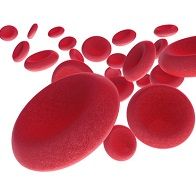Article
Peripheral Artery Disease: Clopidogrel Is Fine, Ticagrelor's not Better
Author(s):
Systemic atherosclerosis causes peripheral artery disease, and these patients are at risk of cardiovascular death and stroke.

Systemic atherosclerosis causes peripheral artery disease (PAD) and these patients are at risk of cardiovascular death and stroke.
A study known as EUCLID found no therapeutic difference in two drugs used to treat PAD. The condition afflicts over 10% of people in the US who are over 60, putting them in danger of having heart attacks and strokes.
Researchers compared clopidogrel (Plavix/Bristol Myers Squibb) to ticagrelor (Brilinta/Astra Zeneca) to see whether long-term monotherapy with ticagrelor was better at preventing cardiovascular death, heart attack, and stroke in these patients.
They studied 13,885 patients, average age 66 and 72% of them men, who were randomized to receive either ticagrelor 90 mg twice a day or clopidogrel 75 mgs once a day. The trial covered 28 countries and 821 sites.
Reporting at the American Heart Association's Scientific Sessions 2016 in New Orleans, LA, Manesh Patel, MD, an associate professor of medicine and director of Interventional Cardiology and Catheterization Labs at Duke University Medical Center, Durham, NC and colleagues there and at other institutions presented the results of the trial. The information was presented as a late-breaking clinical trial.
"In patients with symptomatic peripheral artery disease, ticagrelor was not shown to be superior to clopidogrel for the reduction of cardiovascular events," the team found, "Major bleeding occurred at similar rates among the patients in the two trial groups."
The finding was puzzling because earlier studies have found ticagrelor did confer a benefit. One explanation might be that some patients with a genetic tendency to metabolize clopidogrel poorly were excluded, but the study author said that was just a small percentage of patients.
Also, the study participants were mostly Asian, and might have different genetic traits regarded to how the drugs affect them.
"It's clear clearly many knowledge gaps remain," the researcher said, and new antiplatelet therapies and additional medical therapies are needed.
In a second finding that Patel said is intriguing, ticagrelor shows "an interesting stroke signal" that bears further investigation.
He added that ticagrelor has been shown more beneficial in present adverse events in other patients with a different cardiovascular problem. "There is a huge benefit in acute plaque rupture," he said.





